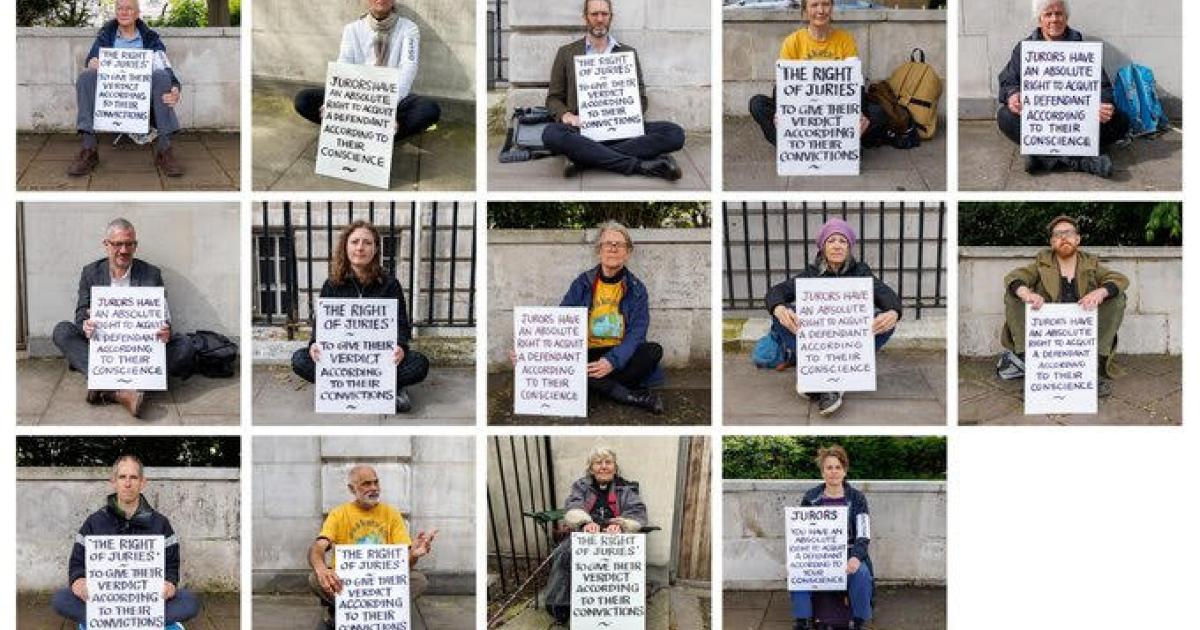
She called her treatment “Kafkaesque”. “Jurors are not there to follow the judge. Judges are happy to say that they’re courts of law, not courts of morality, but I don’t accept that.”
Regressive
The government’s increasing crackdown on peaceful protest has been flagged as “extremely worrying” by the UN special rapporteur for environmental defenders, Michel Forst.
Legislation being used to convict peaceful protestors under the Police, Crime, Sentencing and Courts Act 2022, and the Public Order Act 2023 are “regressive”, he said. Prior to these laws, it had been almost unheard of for members of the public to be imprisoned for peaceful protest in the UK since the 1930s, he noted.
“As the UN Human Rights Committee has made clear, states have a duty to facilitate the right to protest, and private entities and broader society may be expected to accept some level of disruption as a result of the exercise of this right,” he said.
In a video update to the LAR conference, Forst said that he was more concerned about the crackdown in the UK than those he had seen in many other countries. “
“Since then, the situation does not seem to have improved. On the contrary, there are various developments that were brought to my attention… that added to my initial concerns,” he said, pointing to the fact that several medical doctors are facing the risk of losing their license for participating in peaceful protests.
Misconduct
Raj Chada, head of the criminal defence, financial crime and regulatory department at law firm Hodge Jones & Allen said: “Until two or three years ago, no-one went to jail for peaceful protest.
“We came close a couple of times but that has now been shot through. It’s almost become a real norm that for disruption, they will go to prison. It creates a different dynamic – the risks are different, the emotional strains on defendents are different.”
One of these is Dr Sarah Benn, a retired GP and NHS doctor. This week, she was found guilty of professional misconduct by the General Medical Council (GMC), and her registration as a doctor suspended for five months.
The professional body took the action following Benn’s imprisonment for holding a sign saying ‘Stop New Oil”, in breach of an injunction against all forms of protest obtained by the US based fossil fuel giant, Valero.
Punishment
A spokesperson for the GMC said that it had referred Dr Benn for breaking the law, not for taking part in a peaceful protest against climate change. “Patients and the public rightly have a high degree of trust in doctors and that trust can be eroded if doctors repeatedly fail to comply with the law,” they said.
However, the British Medical Association said that the decision sent a worrying message for doctors about the regulation of matters not related to patient care or clinical skills.
Dr Latifa Patel, BMA representative body chair and workforce lead, said: “Whilst the GMC has a duty to refer doctors to a medical tribunal when they receive a custodial sentence, in some cases, such as this one, the doctor’s actions will have no bearing on their ability to practise medicine and will not pose a risk to patients, past or future.”
The GMC and medical profession should review the basis on which it bought Dr Benn to a medical tribunal, she said, adding: “We need urgent consideration on the rules as to why a doctor has been suspended for the punishment they already received for taking part in a legitimately peaceful protest, especially as the climate crisis is also a health crisis.”
This Author
Catherine Early is a freelance environmental journalist and chief reporter for The Ecologist. She tweets at @Cat_Early76.
- SEO Powered Content & PR Distribution. Get Amplified Today.
- PlatoData.Network Vertical Generative Ai. Empower Yourself. Access Here.
- PlatoAiStream. Web3 Intelligence. Knowledge Amplified. Access Here.
- PlatoESG. Carbon, CleanTech, Energy, Environment, Solar, Waste Management. Access Here.
- PlatoHealth. Biotech and Clinical Trials Intelligence. Access Here.
- Source: https://theecologist.org/2024/apr/26/climate-activists-kafkaesque-trial
